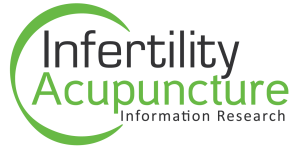The Effect of Acupuncture on Psychosocial Outcomes for Women Experiencing Infertility: A Pilot Randomized Controlled Trial
Caroline A. Smith, PhD, Jane M. Ussher, PhD, Janette Perz, PhD, Bridget Carmady, and Sheryl de Lacey, PhD
Abstract
Objectives:
The study objectives were to examine the effectiveness of acupuncture for reducing infertility-related stress.
Design:
The study design was a randomized controlled trial of acupuncture compared with a wait-list control.
Setting:
The study was conducted at The University of Western Sydney.
Subjects:
Thirty-two (32) women aged 20–45 years, with a diagnosis of infertility, or a history of unsuccessfully trying to conceive for 12 months or more, were the subjects of the study.
Interventions:
Women received six sessions of acupuncture for over 8 weeks.
Outcome measures:
The primary outcomes were infertility self-efficacy, anxiety, and infertility-related stress. The women’s experience of infertility and acupuncture is also reported.
Results:
At the end of the 8-week intervention, women in the acupuncture group reported significant changes on two domains on the Fertility Problem Inventory with less social concern (mean difference [MD] ?3.75, 95% confidence interval [CI] ?7.58 to 0.84, p=0.05), and less relationship concern (MD ?3.66, 95% CI ?6.80 to ?0.052, p=0.02). There were also trends toward a reduction of infertility stress on other domains, and a trend toward improved self-efficacy (MD 11.9, 95% CI ? 2.20 to 26.0, p=0.09) and less anxiety (MD ? 2.54, 95% CI ? 5.95 to 0.86, p=0.08) in the acupuncture group compared with the wait-list control. Women described the experience and impact of acupuncture as positive relating to a sense of relaxation and time out, the engagement with the practitioner, and intervention that had very few negative side-effects. Changes were also perceived after treatment with women describing a physical and psychologic sense of relaxation and calmness, and a changed perspective in relation to coping.
Conclusions:
Acupuncture may be a useful intervention to assist with the reduction of infertility-related stress. Further research is justified.
